Machine Learning
Data-driven approaches to design intelligent algorithms.
MERL has a long history of research activity in machine learning, including the development of various boosting algorithms and contributing to the theory and practice of highly scalable collaborative filtering. Our recent work has focused on deep learning and reinforcement learning, with application to a wide range of applications including automotive, robotics, factory automation, transportation, as well as building and home systems.
Quick Links
-
Researchers
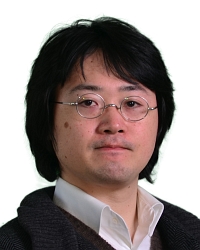
Toshiaki
Koike-Akino

Ye
Wang

Jonathan
Le Roux

Gordon
Wichern

Anoop
Cherian

Pu
(Perry)
Wang
Tim K.
Marks

Michael J.
Jones

Christopher R.
Laughman

Kieran
Parsons
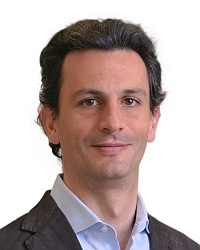
Stefano
Di Cairano

Philip V.
Orlik

Daniel N.
Nikovski
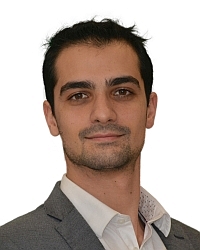
Diego
Romeres

Jing
Liu

Chiori
Hori

Suhas
Lohit

Bingnan
Wang

Yebin
Wang

Matthew
Brand

Hassan
Mansour

Petros T.
Boufounos

Kuan-Chuan
Peng

Yoshiki
Masuyama

Moitreya
Chatterjee

Abraham P.
Vinod

Arvind
Raghunathan

Vedang M.
Deshpande

Jianlin
Guo

Siddarth
Jain

Pedro
Miraldo

Hongtao
Qiao

Scott A.
Bortoff

Saviz
Mowlavi

Radu
Corcodel

William S.
Yerazunis

Chungwei
Lin

Dehong
Liu

Hongbo
Sun

Joshua
Rapp

Nobuyuki
Yoshikawa
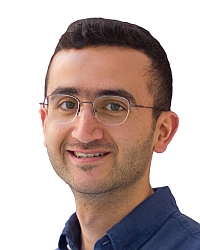
Wael H.
Ali

Christoph Benedikt Josef
Boeddeker
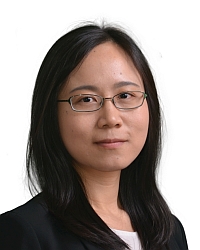
Yanting
Ma

Anthony
Vetro
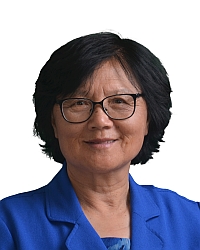
Jinyun
Zhang

Purnanand
Elango

Abraham
Goldsmith

Zhaolin
Ren

Alexander
Schperberg

Avishai
Weiss
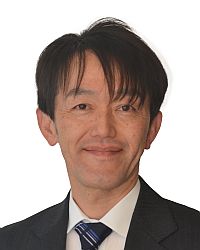
Kenji
Inomata
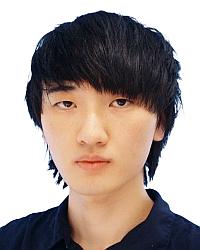
Kei
Suzuki
-
Awards
-
AWARD MERL team wins the Generative Data Augmentation of Room Acoustics (GenDARA) 2025 Challenge Date: April 7, 2025
Awarded to: Christopher Ick, Gordon Wichern, Yoshiki Masuyama, François G. Germain, and Jonathan Le Roux
MERL Contacts: Jonathan Le Roux; Yoshiki Masuyama; Gordon Wichern
Research Areas: Artificial Intelligence, Machine Learning, Speech & AudioBrief- MERL's Speech & Audio team ranked 1st out of 3 teams in the Generative Data Augmentation of Room Acoustics (GenDARA) 2025 Challenge, which focused on “generating room impulse responses (RIRs) to supplement a small set of measured examples and using the augmented data to train speaker distance estimation (SDE) models". The team was led by MERL intern Christopher Ick, and also included Gordon Wichern, Yoshiki Masuyama, François G. Germain, and Jonathan Le Roux.
The GenDARA Challenge was organized as part of the Generative Data Augmentation (GenDA) workshop at the 2025 IEEE International Conference on Acoustics, Speech, and Signal Processing (ICASSP 2025), and held on April 7, 2025 in Hyderabad, India. Yoshiki Masuyama presented the team's method, "Data Augmentation Using Neural Acoustic Fields With Retrieval-Augmented Pre-training".
The GenDARA challenge aims to promote the use of generative AI to synthesize RIRs from limited room data, as collecting or simulating RIR datasets at scale remains a significant challenge due to high costs and trade-offs between accuracy and computational efficiency. The challenge asked participants to first develop RIR generation systems capable of expanding a sparse set of labeled room impulse responses by generating RIRs at new source–receiver positions. They were then tasked with using this augmented dataset to train speaker distance estimation systems. Ranking was determined by the overall performance on the downstream SDE task. MERL’s approach to the GenDARA challenge centered on a geometry-aware neural acoustic field model that was first pre-trained on a large external RIR dataset to learn generalizable mappings from 3D room geometry to room impulse responses. For each challenge room, the model was then adapted or fine-tuned using the small number of provided RIRs, enabling high-fidelity generation of RIRs at unseen source–receiver locations. These augmented RIR sets were subsequently used to train the SDE system, improving speaker distance estimation by providing richer and more diverse acoustic training data.
- MERL's Speech & Audio team ranked 1st out of 3 teams in the Generative Data Augmentation of Room Acoustics (GenDARA) 2025 Challenge, which focused on “generating room impulse responses (RIRs) to supplement a small set of measured examples and using the augmented data to train speaker distance estimation (SDE) models". The team was led by MERL intern Christopher Ick, and also included Gordon Wichern, Yoshiki Masuyama, François G. Germain, and Jonathan Le Roux.
-
AWARD Mitsubishi Electric Team Wins Awards at GalFer Contest Date: June 23, 2025
Awarded to: Bingnan Wang, Tatsuya Yamamoto, Yusuke Sakamoto, Siyuan Sun, Toshiaki Koike-Akino, and Ye Wang
MERL Contacts: Toshiaki Koike-Akino; Bingnan Wang; Ye Wang
Research Areas: Machine Learning, Multi-Physical Modeling, OptimizationBrief- The MELSUR (Mitsubishi Electric SURrogate) team, consisting of a group of MERL and Mitsubishi Electric researchers, ranked first in two out of three categories in the GalFer Contest.
The GalFer (Galileo Ferraris) contest aims to compare the accuracy and efficiency of data-driven methodologies for the multi-physics simulation of traction electric machines. A total of 26 teams worldwide participated in the contest, which consists of three categories. The MELSUR team, including MERL staff Bingnan Wang, Toshiaki Koike-Akino, Ye Wang, MERL intern Siyuan Sun, Mitsubishi Electric researchers Tatsuya Yamamoto and Yusuke Sakamoto, ranked first for the category of "Novelty" and "Interpolation". The results were announced during an award ceremony at the COMPUMAG 2025 conference in Naples, Italy.
- The MELSUR (Mitsubishi Electric SURrogate) team, consisting of a group of MERL and Mitsubishi Electric researchers, ranked first in two out of three categories in the GalFer Contest.
-
AWARD MERL work receives IEEE Transactions on Automation Science and Engineering Best New Application Paper Award from IEEE Robotics and Automation Society Date: May 19, 2025
Awarded to: Yehan Ma, Yebin Wang, Stefano Di Cairano, Toshiaki Koike-Akino, Jianlin Guo, Philip Orlik, Xinping Guan and Chenyang Lu
MERL Contacts: Stefano Di Cairano; Jianlin Guo; Toshiaki Koike-Akino; Philip V. Orlik; Yebin Wang
Research Areas: Communications, Control, Machine LearningBrief- The paper “Smart Actuation for End-Edge Industrial Control Systems”, co-authored by MERL intern Yehan Ma, MERL researchers Yebin Wang, Stefano Di Cairano, Toshiaki Koike-Akino, Jianlin Guo, and Philip Orlik, and academic collaborators Xinping Guan and Chenyang Lu, was recognized as the Best New Application Paper of the IEEE Transactions on Automation Science and Engineering (T-ASE), for "a new industrial automation solution that ensures safety operation through coordinated co-design of edge model predictive control and local actuation".
The award recognizes the best application paper published in T-ASE over the previous calendar year, for the significance of new applications, technical merit, originality, potential impact on the field, and clarity of presentation.
- The paper “Smart Actuation for End-Edge Industrial Control Systems”, co-authored by MERL intern Yehan Ma, MERL researchers Yebin Wang, Stefano Di Cairano, Toshiaki Koike-Akino, Jianlin Guo, and Philip Orlik, and academic collaborators Xinping Guan and Chenyang Lu, was recognized as the Best New Application Paper of the IEEE Transactions on Automation Science and Engineering (T-ASE), for "a new industrial automation solution that ensures safety operation through coordinated co-design of edge model predictive control and local actuation".
See All Awards for Machine Learning -
-
News & Events
-
TALK [MERL Seminar Series 2026] Laixi Shi presents talk titled Robust Decision Making Without Compromising Learning Efficiency Date & Time: Wednesday, January 14, 2026; 1:00 PM
Speaker: Laixi Shi, Johns Hopkins University
MERL Host: Dehong Liu
Research Areas: Artificial Intelligence, Control, Machine LearningAbstract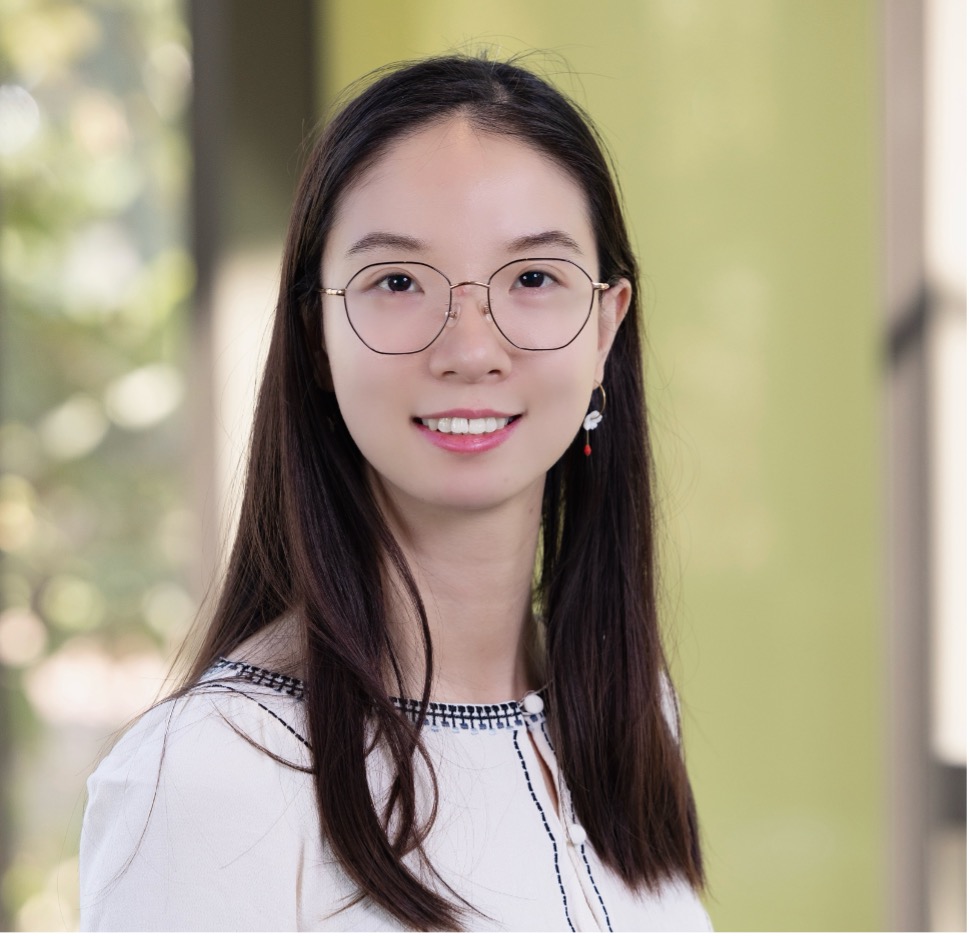 Decision-making artificial intelligence (AI) has revolutionized human life ranging from healthcare, daily life, to scientific discovery. However, current AI systems often lack reliability and are highly vulnerable to small changes in complex, interactive, and dynamic environments. My research focuses on achieving both reliability and learning efficiency simultaneously when building AI solutions. These two goals seem conflicting, as enhancing robustness against variability often leads to more complex problems that requires more data and computational resources, at the cost of learning efficiency. But does it have to?
Decision-making artificial intelligence (AI) has revolutionized human life ranging from healthcare, daily life, to scientific discovery. However, current AI systems often lack reliability and are highly vulnerable to small changes in complex, interactive, and dynamic environments. My research focuses on achieving both reliability and learning efficiency simultaneously when building AI solutions. These two goals seem conflicting, as enhancing robustness against variability often leads to more complex problems that requires more data and computational resources, at the cost of learning efficiency. But does it have to?
In this talk, I overview my work on building reliable decision-making AI without sacrificing learning efficiency, offering insights into effective optimization problem design for reliable AI. To begin, I will focus on reinforcement learning (RL) — a key framework for sequential decision-making, and demonstrate how distributional robustness can be achieved provably without paying statistical premium (additional training data cost) compared to non-robust counterparts. Next, shifting to decision-making in strategic multi-agent systems, I will demonstrate that incorporating realistic risk preferences—a key feature of human decision-making—enables computational tractability, a benefit not present in traditional models. Finally, I will present a vision for building reliable, learning-efficient AI solutions for human-centered applications, though agentic and multi-agentic AI systems.
-
NEWS MERL Researcher Diego Romeres Collaborates with Mitsubishi Electric and University of Padua to Advance Physics-Embedded AI for Predictive Equipment Maintenance Date: December 10, 2025
MERL Contact: Diego Romeres
Research Areas: Artificial Intelligence, Machine Learning, RoboticsBrief- Mitsubishi Electric Research Laboratories (MERL) researchers, together with collaborators at Mitsubishi Electric’s Information Technology R&D Center in Kamakura, Kanagawa Prefecture, Japan, and the Department of Information Engineering at the University of Padua, have developed a cutting-edge physics-embedded AI technology that substantially improves the accuracy of equipment degradation estimation using minimal training data. This collaborative effort has culminated in a press release by Mitsubishi Electric Corporation announcing the new AI technology as part of its Neuro-Physical AI initiative under the Maisart program.
The interdisciplinary team, including MERL Senior Principal Research Scientist and Team Leader Diego Romeres and University of Padua researchers Alberto Dalla Libera and Giulio Giacomuzzo, combined expertise in machine learning, physical modeling, and real-world industrial systems to embed physics-based models directly into AI frameworks. By training AI with theoretical physical laws and real operational data, the resulting system delivers reliable degradation estimates on the torque of robotic arms even with limited datasets. This result addresses key challenges in preventive maintenance for complex manufacturing environments and supports reduced downtime, maintained quality, and lower lifecycle costs.
The successful integration of these foundational research efforts into Mitsubishi Electric’s business-scale AI solutions exemplifies MERL’s commitment to translating fundamental innovation into real-world impact.
- Mitsubishi Electric Research Laboratories (MERL) researchers, together with collaborators at Mitsubishi Electric’s Information Technology R&D Center in Kamakura, Kanagawa Prefecture, Japan, and the Department of Information Engineering at the University of Padua, have developed a cutting-edge physics-embedded AI technology that substantially improves the accuracy of equipment degradation estimation using minimal training data. This collaborative effort has culminated in a press release by Mitsubishi Electric Corporation announcing the new AI technology as part of its Neuro-Physical AI initiative under the Maisart program.
See All News & Events for Machine Learning -
-
Research Highlights
-
SAC-GNC: SAmple Consensus for adaptive Graduated Non-Convexity -
PS-NeuS: A Probability-guided Sampler for Neural Implicit Surface Rendering -
Quantum AI Technology -
TI2V-Zero: Zero-Shot Image Conditioning for Text-to-Video Diffusion Models -
Gear-NeRF: Free-Viewpoint Rendering and Tracking with Motion-Aware Spatio-Temporal Sampling -
Private, Secure, and Reliable Artificial Intelligence -
Steered Diffusion -
Sustainable AI -
Edge-Assisted Internet of Vehicles for Smart Mobility -
Robust Machine Learning -
mmWave Beam-SNR Fingerprinting (mmBSF) -
Video Anomaly Detection -
Biosignal Processing for Human-Machine Interaction -
MERL Shopping Dataset -
Task-aware Unified Source Separation - Audio Examples
-
-
Internships
-
CI0213: Internship - Efficient Foundation Models for Edge Intelligence
-
EA0235: Internship - Planning and Control of Mobile Manipulators
-
CV0224: Internship - Language-Guided Human-Robot Interaction
See All Internships for Machine Learning -
-
Openings
-
MS0268: Research Scientist - Multiphysical Systems
-
CI0177: Postdoctoral Research Fellow - Agentic AI
See All Openings at MERL -
-
Recent Publications
- , "Amplification Effects in Test-Time Reinforcement Learning: Safety and Reasoning Vulnerabilities", AAAI Workshop on Trust and Control in Agentic AI, January 2026.BibTeX TR2026-020 PDF
- @inproceedings{Khattar2026jan,
- author = {Khattar, Vanshaj and Choudhury, Moumita and Rashid, Md Rafi Ur and Liu, Jing and Koike-Akino, Toshiaki and Jin, Ming and Wang, Ye},
- title = {{Amplification Effects in Test-Time Reinforcement Learning: Safety and Reasoning Vulnerabilities}},
- booktitle = {AAAI Workshop on Trust and Control in Agentic AI},
- year = 2026,
- month = jan,
- url = {https://www.merl.com/publications/TR2026-020}
- }
- , "Quantum Implicit Neural Compression", Springer Nature, January 2026.BibTeX TR2026-022 PDF
- @article{Fujihashi2026jan,
- author = {Fujihashi, Takuya and Koike-Akino, Toshiaki},
- title = {{Quantum Implicit Neural Compression}},
- journal = {Springer Nature},
- year = 2026,
- month = jan,
- url = {https://www.merl.com/publications/TR2026-022}
- }
- , "LatentLLM: Activation-Aware Transform to Multi-Head Latent Attention", AAAI Conference on Artificial Intelligence, January 2026.BibTeX TR2026-018 PDF Presentation
- @inproceedings{Koike-Akino2026jan,
- author = {{{Koike-Akino, Toshiaki and Chen, Xiangyu and Liu, Jing and Wang, Ye and Wang, Pu and Brand, Matthew}}},
- title = {{{LatentLLM: Activation-Aware Transform to Multi-Head Latent Attention}}},
- booktitle = {AAAI Conference on Artificial Intelligence},
- year = 2026,
- month = jan,
- url = {https://www.merl.com/publications/TR2026-018}
- }
- , "Chain-of-Thought Driven Adversarial Scenario Extrapolation for Robust Language Models", AAAI Conference on Artificial Intelligence, January 2026.BibTeX TR2026-017 PDF
- @inproceedings{Rashid2026jan,
- author = {Rashid, Md Rafi Ur and Dasu, Vishnu Asutosh and Wang, Ye and Tan, G. Gary and Mehnaz, Shagufta},
- title = {{Chain-of-Thought Driven Adversarial Scenario Extrapolation for Robust Language Models}},
- booktitle = {AAAI Conference on Artificial Intelligence},
- year = 2026,
- month = jan,
- url = {https://www.merl.com/publications/TR2026-017}
- }
- , "Indoor Multi-View Radar Object Detection via 3D Bounding Box Diffusion", AAAI Conference on Artificial Intelligence, January 2026.BibTeX TR2026-019 PDF Software
- @inproceedings{Yataka2026jan,
- author = {Yataka, Ryoma and Wang, Pu and Boufounos, Petros T. and Takahashi, Ryuhei},
- title = {{Indoor Multi-View Radar Object Detection via 3D Bounding Box Diffusion}},
- booktitle = {AAAI Conference on Artificial Intelligence},
- year = 2026,
- month = jan,
- url = {https://www.merl.com/publications/TR2026-019}
- }
- , "Embracing Cacophony: Explaining and Improving Random Mixing in Music Source Separation", IEEE Open Journal of Signal Processing, DOI: 10.1109/OJSP.2025.3633567, Vol. 6, pp. 1179-1192, January 2026.BibTeX TR2026-012 PDF
- @article{Jeon2026jan,
- author = {Jeon, Chang-Bin and Wichern, Gordon and Germain, François G and {Le Roux}, Jonathan},
- title = {{Embracing Cacophony: Explaining and Improving Random Mixing in Music Source Separation}},
- journal = {IEEE Open Journal of Signal Processing},
- year = 2026,
- volume = 6,
- pages = {1179--1192},
- month = jan,
- doi = {10.1109/OJSP.2025.3633567},
- url = {https://www.merl.com/publications/TR2026-012}
- }
- , "Local Density-Based Anomaly Score Normalization for Domain Generalization", IEEE Transactions on Audio, Speech and Language Processing, January 2026.BibTeX TR2026-010 PDF Software
- @article{Wilkinghoff2026jan,
- author = {Wilkinghoff, Kevin and Yang, Haici and Ebbers, Janek and Germain, François G and Wichern, Gordon and {Le Roux}, Jonathan},
- title = {{Local Density-Based Anomaly Score Normalization for Domain Generalization}},
- journal = {IEEE Transactions on Audio, Speech and Language Processing},
- year = 2026,
- month = jan,
- url = {https://www.merl.com/publications/TR2026-010}
- }
- , "Recent Trends in Distant Conversational Speech Recognition: A Review of CHiME-7 and 8 DASR Challenges", Computer Speech & Language, DOI: 10.1016/j.csl.2025.101901, Vol. 97, pp. 101901, December 2025.BibTeX TR2026-008 PDF
- @article{Cornell2025dec,
- author = {Cornell, Samuele and Boeddeker, Christoph and Park, Taejin and Huang, He and Raj, Desh and Wiesner, Matthew and Masuyama, Yoshiki and Chang, Xuankai and Wang, Zhong-Qiu and Squartini, Stefano and Garcia, Paola and Watanabe, Shinji},
- title = {{Recent Trends in Distant Conversational Speech Recognition: A Review of CHiME-7 and 8 DASR Challenges}},
- journal = {Computer Speech \& Language},
- year = 2025,
- volume = 97,
- pages = 101901,
- month = dec,
- doi = {10.1016/j.csl.2025.101901},
- url = {https://www.merl.com/publications/TR2026-008}
- }
- , "Amplification Effects in Test-Time Reinforcement Learning: Safety and Reasoning Vulnerabilities", AAAI Workshop on Trust and Control in Agentic AI, January 2026.
-
Videos
-
Software & Data Downloads
-

Radar-based 3D Pose Estimation using Transformer -

Open Vocabulary Attribute Detection Dataset -

multi-view Radar object dEtection with 3D bounding boX diffusiOn -

Long-Tailed Online Anomaly Detection dataset -

Group Representation Networks -

Stabilizing Subject Transfer in EEG Classification with Divergence Estimation -

Task-Aware Unified Source Separation -

Local Density-Based Anomaly Score Normalization for Domain Generalization -

Retrieval-Augmented Neural Field for HRTF Upsampling and Personalization -

ComplexVAD Dataset -

Self-Monitored Inference-Time INtervention for Generative Music Transformers -

Radar dEtection TRansformer -

Millimeter-wave Multi-View Radar Dataset -

Zero-Shot Image Conditioning for Text-to-Video Diffusion Models -

Gear Extensions of Neural Radiance Fields -

Long-Tailed Anomaly Detection Dataset -

Target-Speaker SEParation -

Pixel-Grounded Prototypical Part Networks -

Steered Diffusion -

BAyesian Network for adaptive SAmple Consensus -

Meta-Learning State Space Models -

Explainable Video Anomaly Localization -

Simple Multimodal Algorithmic Reasoning Task Dataset -

Partial Group Convolutional Neural Networks -

SOurce-free Cross-modal KnowledgE Transfer -

Audio-Visual-Language Embodied Navigation in 3D Environments -

Nonparametric Score Estimators -

3D MOrphable STyleGAN -

Instance Segmentation GAN -

Audio Visual Scene-Graph Segmentor -

Generalized One-class Discriminative Subspaces -

Hierarchical Musical Instrument Separation -

Generating Visual Dynamics from Sound and Context -

Adversarially-Contrastive Optimal Transport -

Online Feature Extractor Network -
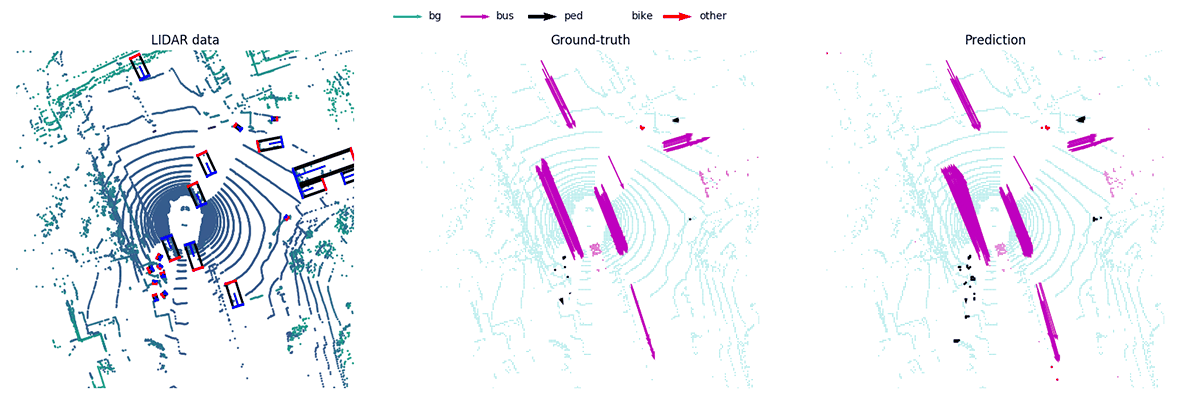
MotionNet -

FoldingNet++ -

Quasi-Newton Trust Region Policy Optimization -

Landmarks’ Location, Uncertainty, and Visibility Likelihood -

Robust Iterative Data Estimation -

Gradient-based Nikaido-Isoda -

Circular Maze Environment -

Discriminative Subspace Pooling -

Kernel Correlation Network -

Fast Resampling on Point Clouds via Graphs -

FoldingNet -

Deep Category-Aware Semantic Edge Detection -

MERL Shopping Dataset -

Subject- and Dataset-Aware Neural Field for HRTF Modeling -

MMHOI Dataset: Modeling Complex 3D Multi-Human Multi-Object Interactions -

MEL-PETs Defense for LLM Privacy Challenge -

MEL-PETs Joint-Context Attack for LLM Privacy Challenge -

Generalization in Deep RL with a Robust Adaptation Module -

Learned Born Operator for Reflection Tomographic Imaging
-